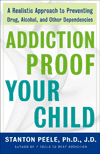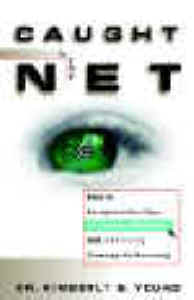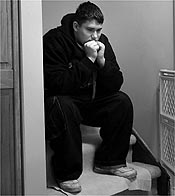Vitamin B12 (Cobalamin)

Vitamin B12 aka Cobalamin is helpful in preventing depression and alzheimer's disease. Learn about the usage, dosage, side-effects of vitamin B12.
Also Known As: Cyanocobalamin
Overview
Vitamin B12, also called cobalamin, is one of eight water-soluble B vitamins. All B vitamins help the body to convert carbohydrates into glucose (sugar), which is "burned" to produce energy. These B vitamins, often referred to as B complex vitamins, are essential in the breakdown of fats and protein. B complex vitamins also play an important role in maintaining muscle tone lining the digestive tract and promoting the health of the nervous system, skin, hair, eyes, mouth, and liver.
Vitamin B12 is an especially important vitamin for maintaining healthy nerve cells and it aids in the production of DNA and RNA, the body's genetic material. Vitamin B12 also works closely together with vitamin B9 (folate) to regulate the formation of red blood cells and to help iron function better in the body. The synthesis of S-adenosylmethionine (SAMe), a compound involved in immune function and mood, depends on the participation of folate and vitamin B12.
Similar to other B complex vitamins, cobalamine is considered an "anti-stress vitamin" because it is believed to enhance the activity of the immune system and improve the body's ability to withstand stressful conditions.
Vitamins B12, B6, and B9 (folate) work closely together to control blood levels of the amino acid homocysteine. Elevated levels of this substance appear to be linked with heart disease and, possibly, depression and Alzheimer's Disease.
Deficiencies of vitamin B12 are usually caused by a lack of intrinsic factor, a substance that allows the body to absorb vitamin B12 from the digestive system. Such a deficiency can cause a range of symptoms including fatigue, shortness of breath, diarrhea, nervousness, numbness or tingling sensation in the fingers and toes., People with the blood disorder pernicious anemia do not produce sufficient intrinsic factor and must take high doses of vitamin B12 to maintain their health. Similarly, people who have had stomach surgery (for example, for a severe ulcer) are at risk for vitamin B12 deficiency and pernicious anemia. They require lifetime B12 injections after the surgery.
Others at risk for B12 deficiency include vegetarians who follow a strict vegan or macrobiotic diet; those with certain intestinal infections such as tapeworm and, possibly, Helicobacter pylori (an organism in the intestines that can cause an ulcer); and those with an eating disorder.
Vitamin B12 Uses
Pernicious Anemia
The most important use of vitamin B12 is to treat the symptoms of pernicious anemia. These symptoms include weakness, pale skin, diarrhea, weight loss, fever, numbness or tingling sensation in the hands and feet, loss of balance, confusion, memory loss, and moodiness.
Heart Disease
Many studies indicate that patients with elevated levels of the amino acid homocysteine are roughly 1.7 times more likely to develop coronary artery disease and 2.5 times more likely to suffer from a stroke than those with normal levels. Homocysteine levels are strongly influenced by B complex vitamins, particularly vitamins B9, B6, and B12.
The American Heart Association recommends that, for most people, an adequate amount of these important B vitamins be obtained from the diet, rather than taking extra supplements. Under certain circumstances, however, supplements may be necessary. Such circumstances include elevated homocysteine levels in someone who already has heart disease or who has a strong family history of heart disease that developed at a young age.
Vitamin B12 for Alzheimer's Disease
Vitamin B9 (folate) and vitamin B12 are critical to the health of the nervous system and to a process that clears homocysteine from the blood. As stated earlier, homocysteine may contribute to the development of certain illnesses such as heart disease, depression, and Alzheimer's Disease. Elevated levels of homocysteine and decreased levels of both folate and vitamin B12 have been found in people with Alzheimer's Disease, but the benefits of supplementation for dementia are not yet known.
Vitamin B12 for depression
Studies suggest that vitamin B9 (folate) may be associated with depression more than any other nutrient. Between 15% and 38% of people with depression have low folate levels in their bodies and those with very low levels tend to be the most depressed. Low folate levels tend to lead to elevated homocysteine levels. Many healthcare providers recommend a B complex multivitamin that contains folate as well as vitamins B6 and B12 to improve symptoms. If the multivitamin with these B vitamins is not enough to bring elevated homocysteine levels down, the physician may then recommend higher amounts of folate along with vitamins B6 and B12. Again, these three nutrients work closely together to bring down high homocysteine levels, which may be related to the development of depression.
Burns
It is especially important for people who have sustained serious burns to obtain adequate amounts of nutrients in their daily diet. When skin is burned, a substantial percentage of micronutrients may be lost. This increases the risk for infection, slows the healing process, prolongs the hospital stay, and even increases the risk of death. Although it is unclear which micronutrients are most beneficial for people with burns, many studies suggest that a multivitamin including the B complex vitamins may aid in the recovery process.
Osteoporosis
Keeping bones healthy throughout life depends on getting sufficient amounts of specific vitamins and minerals, including phosphorous, magnesium, boron, manganese, copper, zinc, folate, and vitamins C, K, B6, and B12, and B6.
In addition, some experts believe that high homocysteine levels may contribute to the development of osteoporosis. If this is the case, then there may prove to be a role for dietary or supplemental vitamins B9, B6, and B12.
Cataracts
Dietary and supplemental vitamin B complex is important for normal vision and prevention of cataracts (damage to the lens of the eye which can lead to cloudy vision). In fact, people with plenty of protein and vitamins A, B1, B2, and B3 (niacin) in their diet are less likely to develop cataracts. Plus, taking additional supplements of vitamins C, E, and B complex (particularly the B1, B2, B9 [folic acid], and B12 [cobalamin] in the complex ) may further protect the lens of your eyes from developing cataracts.
Human Immunodeficiency Virus (HIV)
Blood levels of vitamin B12 are often low in people with HIV. It is unclear, however, what role vitamin B12 supplements would play in treatment. If you have HIV, your levels of vitamin B12 should be followed over time and B12 injections may be considered if levels get too low, especially if you have symptoms of B12 deficiency.
Breast Cancer
Population based studies of postmenopausal women suggest that low vitamin B12 levels in the blood may be associated with an increased risk for breast cancer. It is not clear whether supplementation with vitamin B12 reduces the risk of this disease, however.
Male Infertility
Studies suggest that vitamin B12 supplements may improve sperm counts and sperm mobility. Further studies are needed to best understand how this can help men with a low sperm count or poor sperm quality.
Vitamin B12 Dietary Sources
Good dietary sources of vitamin B12 include fish, dairy products, organ meats (particularly liver and kidney), eggs, beef, and pork
Vitamin B12 Available Forms
Vitamin B12 can be found in multivitamins (including children's chewable and liquid drops), B complex vitamins, and are sold individually. It is available in both oral (tablets and, capsules) and intranasal formssoftgels, and lozenges. Vitamin B12 is also sold under the names cobalamin and cyanocobalamin.
How to Take Vitamin B12
People whose daily diet includes meat, milk, and other dairy products should be able to meet the recommended daily requirements without taking a vitamin supplement. Vegetarians who do not eat any animal protein should take a vitamin B12 supplement with water, preferably after eating. Elderly people may need greater amounts of vitamin B12 than younger people because the body's ability to absorb vitamin B12 from the diet diminishes with age.
People considering B12 supplements should check with a healthcare provider to find out the most appropriate dosage.
Daily recommendations for dietary vitamin B12 are listed below.
Pediatric
- Newborns to 6 months: 0.4 mcg (adequate intake)
- Infants 6 months to 1 year: 0.5 mcg (adequate intake)
- Children 1 to 3 years: 0.9 mcg (RDA)
- Children 4 to 8 years: 1.2 mcg (RDA)
- Children 9 to 13 years: 1.8 mcg (RDA)
- Adolescents 14 to 18 years: 2.4 mcg (RDA)
Adult
- 19 years and older: 2.4 mcg (RDA)*
- Pregnant females: 2.6 mcg (RDA)
- Breastfeeding females: 2.8 mcg (RDA)
*Because 10-30% of older people may not absorb B12 from food very efficiently, it is recommended that those older than 50 years meet their daily requirement mainly through either foods fortified with vitamin B12 or a supplement containing B12.
Precautions
Because of the potential for side effects and interactions with medications, dietary supplements should be taken only under the supervision of a knowledgeable healthcare provider.
Vitamin B12 is considered safe and non-toxic.
Taking any one of the B complex vitamins by itself for a long period of time can result in an imbalance of other important B vitamins. For this reason, it is generally important to take a B complex vitamin with any single B vitamin.
Possible Interactions
If you are currently being treated with any of the following medications, you should not use vitamin B12 supplements without first talking to your healthcare provider.
Antibiotics, Tetracycline
Vitamin B12 should not be taken at the same time as the antibiotic tetracycline because it interferes with the absorption and effectiveness of this medication. Vitamin B12 either alone or in combination with other B vitamins should be taken at different times of the day from tetracycline. (All vitamin B complex supplements act in this way and should therefore be taken at different times from tetracycline.)
In addition, long-term use of antibiotics can deplete vitamin B levels in the body, particularly B2, B9, B12, and vitamin H (biotin), which is considered part of the B complex.
Anti-ulcer Medications
The body's ability to absorb vitamin B12 is decreased when taking stomach acid-reducing medications such as omeprazole, lansoprazole, ranitidine, cimetidine, or antacids that are often used to treat gastroesophageal reflux, ulcers or related symptoms. This interference is most likely to occur as a result of prolonged use (more than one year) of these medications.
Chemotherapy Medications
Blood levels of vitamin B12 may be reduced when taking chemotherapy medications (particularly methotrexate) for cancer.
Metformin for diabetes
Blood levels of vitamin B12 may also be reduced when taking metformin for diabetes.
Phenobarbital and Phenytoin
Long-term treatment with either phenobarbital and phenytoin for seizure disorders may interfere with the body's ability to use vitamin B12.
Supporting Research
Adachi S, Kawamoto T, Otsuka M, Todoroki T, Fukao K. Enteral vitamin B12 supplements reverse postgastrectomy B12 deficiency. Ann Surg. 2000;232(2):199-201.
Alpert JE, Fava M. Nutrition and depression: the role of folate. Nutrition Rev. 1997;5(5):145-149.
Alpert JE, Mischoulon D, Nierenberg AA, Fava M. Nutrition and depression: focus on folate. Nutrition. 2000;16:544-581.
Antoon AY, Donovan DK. Burn Injuries. In: Behrman RE, Kliegman RM, Jenson HB, eds. Nelson Textbook of Pediatrics. Philadelphia, Pa: W.B. Saunders Company; 2000:287-294.
Bauman WA, Shaw S, Jayatilleke E, Spungen AM, Herbert V. Increased intake of calcium reverses vitamin B12 malabsorption induced by metformin. Diabetes Care. 2000;13(9):1227-1231.
Booth GL, Wang EE. Preventive health care, 2000 update: screening and management of hyperhomocysteinemia for the prevention of coronary artery disease events. The Canadian Task Force on Preventive Health Care. CMAJ. 2000;163(1):21-29.
Bottiglieri T. Folate, vitamin B12, and neuropsychiatric disorders. Nutrition Rev. 1996;54(12):382-390.
Bottiglieri T, Laundy M, Crellin R, Toone BK, Carney MW, Reynolds EH. Homocysteine, folate, methylation, and monoamine metabolism in depression. J Neurol Neurosurg Psychiatry. 2000;69(2):228-232.
Boushey CJ, Beresford SA, Omenn GS, Motulsky AG. A quantitative assessment of plasma homocysteine as a risk factor for vascular disease. JAMA. 1995;274:1049-1057.
Brattstrom LE, Hultberg BL, Hardebo JE. Folic acid responsive postmenopausal homocysteinemia. Metabolism. 1985;34(11):1073-1077.
Bunker VW. The role of nutrition in osteoporosis. Br J Biomed Sci. 1994;51(3):228-240.
Carmel R. Cobalamin, the stomach and aging. Am J Clin Nutr. 1997;66(4):750-759.
Choi SW. Vitamin B12 deficiency: a new risk factor for breast cancer? [Review]. Nutr Rev. 1999;57(8):250-253.
Clarke R, Smith AD, Jobst KA, Refsum H, Sutton L, Veland PM. Folate, vitamin B12, and serum total homocysteine levels in confirmed Alzheimer disease. Arch Neurol. 1998;55:1449-1455.
Committee on Dietary Allowances. Recommended Dietary Allowances. National Academy of Sciences. Accessed at www.nal.usda.gov/fnic/Dietary/rda.html on January 8, 1999.
Dastur D, Dave U. Effect of prolonged anticonvulsant medication in epileptic patients: serum lipids, vitamins B6, B12 and folic acid, proteins and fine structure of liver. Epilepsia. 1987;28:147-159.
De-Souza DA, Greene LJ. Pharmacological nutrition after burn injury. J Nutr. 1998;128:797-803.
Eikelboom JW, Lonn E, Genest J, Hankey G, Yusuf S. Homocyst(e)ine and cardiovascular disease: a critical review of the epidemiologic evidence. Ann Intern Med. 1999;131:363-375.
Ekhard ZE, Filer LJ, eds. Present Knowledge in Nutrition. 7th ed. Washington, DC: ILSI Press; 1996:191 - 201.
Fugh-Berman A, Cott JM. Dietary supplements and natural products as psychotherapeutic agents. Psychosom Med. 1999;61:712-728.
Howden CW. Vitamin B12 levels during prolonged treatment with proton pump inhibitors. J Clin Gastroenterol. 1999;30(1):29-33.
Hurter T, Reis HE, Borchard F. Disorders of intestinal absorption in patients treated with cytostatic chemotherapy [in German]. Z Gastroenterol. 1989;27(10):606-610.
Ingram CF, Fleming AF, Patel M, Galpin JS. The value of intrinsic factor antibody test in diagnosing pernicious anaemia. Cent Afr J Med. 1998;44:178 - 181.
Kaptan K, Beyan C, Ural AU, et al. Helicobacter pylori - is it a novel causative agent in vitamin B12 deficiency? Arch Intern Med. 2000;160(9):1349-1353.
Kass-Annese B. Alternative therapies for menopause. Clin Obstet Gynecol. 2000;43(1):162-183.
Kelly GS. Nutritional and botanical interventions to assist with the adaptation to stress. Alt Med Rev. 1999;4(4):249-265.
Kirschmann GJ, Kirschmann JD. Nutrition Almanac. 4th ed. New York: McGraw-Hill;1996:127-136.
Kris-Etherton P, Eckel RH, Howard BV, St. Jeor S, Bazzarre TL. Lyon diet heart study. Benefits of a Mediterranean-style, National Cholesterol Education Program/American Heart Association Step I dietary pattern on cardiovascular disease. Circulation. 2001;103:1823-1825.
Kuzminski AM, Del Giacco EJ, Allen RH, Stabler SP, Lindenbaum J. Effective treatment of cobalamin deficiency with oral cobalamin. Blood. 1998;92(4):1191-1198.
Lederle FA. Oral cobalamin for pernicious anemia. Medicine's best kept secret? JAMA. 1991;265:94-95.
Lee AJ. Metformin in noninsulin-dependent diabetes mellitis. Pharmacotherapy. 1996;16:327 - 351.
Louwman MW, van Dusseldorp M, van de Vijver FJ, et al. Signs of impaired cognitive function in adolescents with marginal cobalamin status. Am J Clin Nutr. 2000;72(3):762-769.
Malinow MR, Bostom AG, Krauss RM. Homocyst(e)ine, diet, and cardiovascular disease. A statement for healthcare professionals from the nutrition committee, American Heart Association. Circulation. 1999;99:178-182.
McKevoy GK, ed. AHFS Drug Information. Bethesda, MD: American Society of Health-System Pharmacists, 1998.
Meyer NA, Muller MJ, Herndon DN. Nutrient support of the healing wound. New Horizons. 1994;2(2):202-214.
Nilsson-Ehle H. Age-related changes in cobalamin (vitamin B12) handling. Implications for therapy. Drugs Aging. 1998;12:277 - 292.
Nutrients and Nutritional Agents. In: Kastrup EK, Hines Burnham T, Short RM, et al, eds. Drug Facts and Comparisons. St. Louis, Mo: Facts and Comparisons; 2000:4-5.
Omray A. Evaluation of pharmacokinetic parameters of tetracylcine hydrochloride upon oral administration with vitamin C and vitamin B complex. Hindustan Antibiot Bull. 1981;23(VI):33-37.
Remacha AF, Cadafalch J. Cobalamin deficiency in patients infected with the human immunodeficiency virus. Semin Hematol. 1999;36:75 - 87.
Schnyder G. Decreased rate of coronary restinosis after lowering of plasma homocysteine levels. N Engl J Med. 2001;345(22):1593-1600.
Schumann K. Interactions between drugs and vitamins in advanced age. Int J Vit Nutr Res. 1999;69(3):173-178.
Sinclair S. Male infertility: nutritional and environmental considerations. Alt Med Rev. 2000;5(1):28-38.
Snowdon DA, Tully CL, Smith CD, Riley KR, Markesbery WR. Serum folate and the severity of atrophy of the neocortex in Alzheimer disease: findings from the Nun Study. Am J Clin Nutr. 2000;71:993-998.
Termanin B, Gibril F, Sutliff VE, Yu F, Venzon DJ, Jensen RT. Effect of long-term gastric acid suppressive therapy on serum vitamin B12 levels in patients with Zollinger-Ellison syndrome. Am J Med. 1998;104(5):422-430.
Verhaeverbeke I, Mets T, Mulkens K, Vandewoude M. Normalization of low vitamin B12 serum levels in older people by oral treatment. J Am Geriatr Soc. 1997;45:124-125.
Wang HX. Vitamin B12 and folate in relation to the development of Alzheimer's Disease. Neurology. 2001;56:1188-1194.
Weir DG, Scott JM. Vitamin B12 "cobalamin." In: Shils, ME, Olson JA, Shike M, Ross AC, eds. Modern Nutrition in Health and Disease. 9th ed. Baltimore, MD: Williams & Wilkins; 1999:447-458.
Wu K, Helzlsouer KJ, Comstock GW, Hoffman SC, Nadeau MR, Selhub J. A prospective study on folate, B12, and pyridoxal 5'-phosphate (B6) and breast cancer.
Cancer Epidemiol Biomarkers Prev. 1999;8(3):209-217.
Young SN. The use of diet and dietary components in the study of factors controlling affect in humans: a review. J Psychiatr Neurosci. 1993;18(5):235-244.
APA Reference
Staff, H.
(2008, December 24). Vitamin B12 (Cobalamin), HealthyPlace. Retrieved
on 2025, December 1 from https://www.healthyplace.com/alternative-mental-health/supplements-vitamins/vitamin-b12-cobalamin
 Will your kids drink or smoke marijuana? Quite possibly. But don't panic. In a world where binge drinking, recreational and prescription drug abuse, chronic overeating and anorexia, and internet gambling and pornography are all too common among teens, it's time to rethink conventional wisdom about addiction. We clearly need something more than "just say no." This book is the alternative.
Will your kids drink or smoke marijuana? Quite possibly. But don't panic. In a world where binge drinking, recreational and prescription drug abuse, chronic overeating and anorexia, and internet gambling and pornography are all too common among teens, it's time to rethink conventional wisdom about addiction. We clearly need something more than "just say no." This book is the alternative. If you answered "yes" to any of the above questions, you may be an obsessive online trader. These are signs that you have lost control, lied, or possibly stole money just to support your trading behavior.
If you answered "yes" to any of the above questions, you may be an obsessive online trader. These are signs that you have lost control, lied, or possibly stole money just to support your trading behavior.



